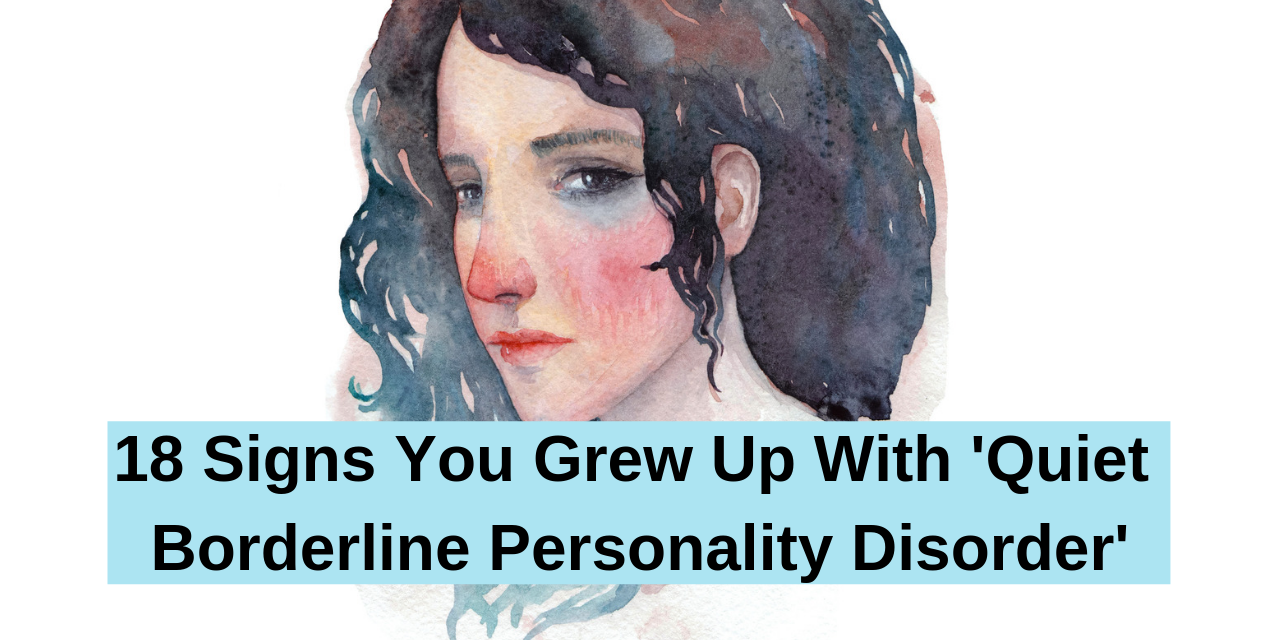 18 Signs You Grew Up With 'Quiet Borderline Personality Disorder' | The Mighty
18 Signs You Grew Up With 'Quiet Borderline Personality Disorder' | The MightySingaporeMental HealthPersonality Personal GrowthRelations Family LifeNeed help? Recently diagnosed? Talk to someoneCurrent So you're not a "10" anyway. But you're probably quite spectacular somehow, and definitely good enough in most areas of life. If there ever was a time to stop beating yourself up as a human being, it is now. Recent newsEsencial ReadsTrending Topics in SingaporeSearch for advice Get helpMiembrosSingapore Get help Mental health Personal growthRelations Family lifeNeed help? Recently diagnosed? Talk to someoneMagazine So you're not a "10" anyway. But you're probably quite spectacular somehow, and definitely good enough in most areas of life. If there ever was a time to stop beating yourself up as a human being, it is now. TodayNewsEssential Read Topics of Trend in Singapore Verified by Psychology Today Do you have "Quick GDP"? Silent suffering with Border Personality Disorder. Posted Sep 18, 2019 (BPD) is an unbearable mental health condition but usually invisible that can distort your vision of yourself and the world around you. As with many other conditions, people experience BPD in a continuum. BPD is also manifested in different forms. The American psychologist Theodore Million identified four types: 1. deterrent border line or 'quiet', 2. impulsive border line, 3. petulsive border, and 4. Self-destructive border line. The diversity of BPD patients and the spectrum of symptoms can be misleading, with most of us tending to focus only on one end of the spectrum. While the media reinforce the stereotyped image of BPD as someone who acts and outsources their , we forget to avoid a thought for those with Quiet BPD who suffer in silence. What's the quiet cop? Stereotypically, a person with BPD has symptoms such as anger overloads, irrational accusations of others, and self-destructive impulsive behavior. In the case of the silent BPD, these things become invisible because volatility is heading inward rather than out. If you have a silent BPD, "act." You experience the full range of emotions — rejection, anger, obsessive emotional, self-doubt, etc. However, you do not show your internal agitation abroad. Instead of grieving, you direct anger, hatred and guilt towards yourself. psychotherapist Pete Walker described four of our basic defensive structures: Fight, Flight, Freeze and Fawn. Most of us use all of these strategies, depending on the situation. If you have a silent BPD, your predominant coping mechanism is frozen. Do you have a silent BPD? Silent BPD symptomsYou blame yourself for everything. People with the silent BPD blame themselves even when it's not their fault. If your friends get angry, you immediately feel like you've done something wrong, even when there's no apparent connection. You always think you're upset or carrying others. Even when they treat you badly, you think you've done something to deserve it. You may have symptoms of , scrutinizing hard everything you say or do, then criticizing or even punishing yourself for it. Hide how you feel. Your whole life, you've learned to hide your true feelings. This may be because you grew up in a home where you did not allow the expression of your needs and emotions. Through social conditioning, you were led to believe that only the "happy, calm and normal" version of you would be accepted. So no matter how much you suffer from the inside, you hide it. Many people with silent BPD also suffer from a condition called alexitimia: the inability to recognize or describe emotions. 'Cause you don't have the vocabulary for your feelings, you just let them work inside you. You look very functional. Many people with the silent BPD seem independent, successful and high-functioning. You can be able at work during the day but collapse when you get home. Subconsciously, you have come to believe that by appearing perfect, beautiful, successful, and so on, you will be able to avoid painful abandonment or rejection. When these false pillars are eliminated, as in the case of unemployment, or financial losses, their sense of self is at risk of collapse. You suffer and derealize. It can be withdrawn not only from the social world but also from its inner world. Whenever emotional pain gets too much, you dissociate yourself. It can be dissociated in the form of depersonalization and derealization, where everything seems surreal. You feel like you're in the air looking at yourself running your life as a distant and separate observer, unable to feel pain or joy. Even when it comes to their close relationships, it doesn't feel connected. You manage your life as an automatic pilot and have lost your inner vitality. Please at a high price. You may have taken the role of pleasing in your home family, at a time when you had no choice but to be an obedient helper to survive. It's not a conscious desire, but you're still prioritizing to be loved for being respected, and panic when others seem to be angry with you or not agreeing with you. When you fall for someone, you get overly nervous and you get scared with the least sign that someone is upset. This puts you in a hypervigilant state and steals from you the creative energy you could use to be productive. The pleasure of people becomes excessive when you find yourself unable to act spontaneously, and it is edited cautiously or scrutinized hard for fear of hurting or offending someone. It isolates to cope with social anxiety. Being in a social situation evokes enormous anxiety for you. Since it's easy for your buttons to be pushed, you know you're prone to feeling hurt, humiliated or embarrassed. Compared to others that look like thick skin, you walk with a third grade burn and without protection. Eventually, it seems easier to retire."Splitting" is a common symptom of the BPD. When you separate, people get into the "good" or "bad" camp. The person who loved yesterday can become his enemy today. When you have silent BPD, you would not directly confront people or fight for their relationships. Instead, you retire and cut them off. Dismiss relationships easily, leaving the other person in confusion. When you look back, however, you may regret losing some friends. You're afraid to be alone, but you're driving away people. As with "classic" BPD, you have a deep fear of abandonment, but instead of fighting for attachment in the form of clinginess, in the silent BPD you think you deserve to be abandoned. Self-abortion can lead you to isolate yourself for days and weeks. In the background, you doubt your worth, and you are afraid that when others come close enough, they will "awe" you are defective. When someone expresses affection for you, you close or distance yourself so they never see the true you. You're so afraid of the prospect of being rejected that you'd rather not start any relationship, or end them before people can get close enough to hurt you. It says, "I'm independent and I don't need relationships." You can end up closing emotions deeply within yourself and becoming chronically empty and numb. You're confused with who you really are. You find it difficult to know who you are because your preferences, beliefs and values seem to change in a daily basis. It may be infatuated with a person, a project or a regimen for a period of time, and suddenly, as if a switch had been turned over, it loses interest. Because of this, you're not sure where you belong. Not having a solid base to work also makes it harder to build self-esteem and . Silent BPD Healing Because the understanding of BPD is limited, even among mental health professionals, can be misdiagnosed with other syndromes such as , , or . Having a silent BPD isolates you. Most likely you feel uncomfortable and even ashamed to have to seek help, but pain and confusion is severe when you take it on your own. Although it may feel unnatural and difficult, coming is an essential step towards healing. You may feel that you do not deserve help; that is not the truth. In the past, you could have been silenced, fired, and spaced. Your system has learned that seeking help means being vulnerable, or that being needed will lead to rejection. If you want to advance and live a different life, one that is more full, richer and more satisfying, you must summon the value to do something different. Reclaiming your voice doesn't have to be discouraging. As soon as you open, you'll realize the world is waiting to hear you. If you share your suffering, your past and your story with someone, somewhere, you will find that you have the power to cure the world. Silence BPD is painful, but it doesn't have to be your story for the rest of your life. Interesting! Any research on this that could be used as evidence and sources? It sounds to me like you're describing Evitating PDs and/or Esquizoides. So there's already a name for that. Self-arm is also common in the BPD, silent or not. It's a real condition, one of the four border subtypes, a little research goes a long way, my friend. I'm 33, I was diagnosed with BPD when I was 17. As a professor of Psychology at the university, teachers constantly discussed BPD with contempt, how they would not treat these clients or how BPD clients were their worst clients. This pushed me into a terrible depression. It validated my negative thoughts on myself. I already felt that no one would want to have me around or have to spend their time with me, now I was hearing it directly from mental health providers. They didn't want me as their client. I'm sharing this article, as I think it's better to articulate with what I live daily. I hope one day I see the stigma for the BPD decreasing as it has with other mental health disorders, so when I'm getting help, I don't feel like more than one burden I already do because of my BPD. Same thing happened to me at the graduate school. He made my BPD worse and made me feel very embarrassed to meet the teachers I trusted to feel that way. I've never had treatment except for medications for this. I'm 67 now and I've been undiagnosed until last year. It should also be said that there is no cure, there is no assisted drug, but a Zen mentality form is useful. Now that I know what it is, I can be aware of it and try to handle it without embarrassment when it dazzles. It's Theodore Millon, not Millon. A computer will give you a subtitle, accusing an error, but it's still Millon. Reading this has brought tears into my eyes. I've known that for over 30 years something was off, I've tried to ignore it waiting for it to go out and get better, it got worse. Over the years I tried to get help for small symptoms but never helped because I didn't know what the problem was and to be honest, I was too scared to find out. Six years ago my father died of cancer and sent me spirals, after really struggling bad for a few years I decided to find out, I thought it might be Aspergers or something because of my extreme social discomfort but that was wrong, slowly I figured it was something like bpd. Finally I had the nerve to talk to a doctor and she was very skeptical about bpd, although she had checked all the boxes of traits, not cut and I don't drink. I don't mess with my face or hide my true feeling, so I look calm even when I'm not, and I told him that. Anyway, it looks like you're one of the few people who understand this. It's so frustrating and exhausting to treat this in isolation. Thank you for a silver of light in the dark. Publication Comment About the authorImi It is a psychotherapist, art therapist, coach and author of the book Intensity and emotional sensitivity. It specializes in emotional intensity, childhood trauma, personality disorders and complex post-traumatic stress. Read NextMore Popular in Singapore Get the help you need from a therapist near you – a FREE Psychology Service Today. Cities:Recent Issues
What is the "Quieto" personality disorder on the border line? Katie Reed, and Salt Lake City's four-bed mom, spent many years living with "quiet" personality disorder on the borderline before getting a proper diagnosis. Before that, she was repeatedly diagnosed — with bipolar disorder, Asperger syndrome and anxiety disorder — none of which was "right". It was after her third suicide attempt in 2009 that was diagnosed with border personality disorder (BPD), a diagnosis that appreciated her better life. "When I was finally diagnosed with BPD, it was like a light on, and suddenly I understood what was happening in my brain and why I acted the way I did," says Reed. What is the personality disorder on the borderline "Quiet" and how does it differentiate from personality disorder on the classical borderline? describes the disorder of the border personality (referred to most of the times as BPD) as marked by erratic mood swings, bad image of itself, impulsive behavior, extreme "black and white" thinking, self-arm and an inability to maintain stable relationships. Episodes of sharp anger, depression or other distinctive signs of the disorder. These episodes can last a few hours a few days. While there is no clear and well-known cause for the BPD, experts believe that a combination of genetics, structure and brain function, as well as environmental and social issues come into play. Many therapists point to a history of child trauma or abuse as a root cause of the disorder. "Quieto" BPD is not easily distinguished from "regular" BPD, at least not in an official sense (it does not have a special designation in the Diagnostic and Statistical Manual of Mental Disorders [DSM], for example). And yet, the therapists and their patients often see a clear distinction between BPD's "quieter" cases and its most traditional manifestations. While the "classic" BPD is characterized by violent outlays, individuals with "fourth" BPD tend to direct this violence inward. "[T]o or with the "fourth" border personality disorder act in," says Dr. Gerard Lawson, president of . "There is less hostility and less aggressive outbreaks, but there can still be isolation, and self-injury behaviors or suicide attempts." People with "quiet" BPD will still experience the intense emotional skating that distinguishes the disorder, but will often work harder to turn off these emotions or to drive them away. Very often, his sense of self is marked by shame or self-hatred. "People with BPD often feel that their emotions are 'wrong' and spend a lot of energy either pushing their feelings down or trying to justify them," explains Jessica Tappana, LCSW, therapist and owner of Aspire Counseling. "If you react by withdrawing ("quiet") or acting outside, BPD's emotional desperation... may feel unbearable." How is the "Quieto" personality disorder diagnosed? Reed has always experienced BPD as an "internal experience". There was very little "acting," and much of his intense emotions resulted in intense periods of self-harm. "My anger and sadness are generally internalized, and my frustrations are directed inward. My arms are crispy with scars in several degrees of healing of years of self-arm (cut), explains Reed. "I will also tend to deal with disgust by cutting myself from those I love, becoming robotics in my interactions, refusing to allow me to empathy or sympathy. It's affected all the relationships I've had. "Because people with the "quiet" form of BPD do not exhibit the classic explosive symptoms of the disorder, it may take a lot longer to get an adequate diagnosis, which is particularly worrying when the symptoms of the "quiet" disorder involve self-arma. "I think people who have more internalized symptoms are not diagnosed at all," says Dr. Colleen Cira, Clinical Psychologist and the Founder and Executive Director of . "The disorder of the personality of the race has a reputation as high in the psychological community as presenting as angry, manipulative, explosive." Dr. Cira explains that while there are symptoms of the "quiet" form of BPD listed in the DSM, they are often overlooked when evaluating a patient, making it harder for patients to get a proper diagnosis. "This is a real problem because not only do these people need treatment to address their BPD symptoms, they are also likely to have trauma stories and need treatment to address their trauma stories as well," he says. Patients who have not been properly diagnosed with "quiet" personality disorder often end up feeling "invisible" and "incompretent," says Dr. Cira, which only makes the disorder more difficult to live, and leads to more episodes of self-harma and low self-esteem. Treatment (and Hope) For people with "Quieto" personality disorder on the borderlineGetting a proper diagnosis for a "quiet" version of BPD tends to be half the battle. When patients discover the name for what they have been living, it can be like a huge weight rises from their shoulders. "I've felt a lot less crazy since I was diagnosed because now I know what I'm dealing with," says Reed. The good news is that treatment options for the "quiet" BPD have increased over the years, as the disorder is best understood. Once patients receive a diagnosis, there are several evidence-based treatments. " Not long ago (15-20 years) some highly qualified doctors believed there was no help for individuals who have a disorder like BPD" says Dr. Lawson. "Now, there are actually very good treatment options, and they're improving. "According to , psychotherapy is recommended treatment, with dialectical behavioral therapy (DBT), cognitive behavioral therapy (CBT), and mentalization-based therapy (MBT), which includes the list of treatment methodologies. DBT is the therapy of choice for the therapist Jessica Tappana, who has frequently used it to treat patients with "quiet" personality on the border line in their practice. It is an intensive treatment with four components: individual therapy, group training DBT, training throughout the week and weekly meetings with your consultation team. But its integral nature is what makes it so successful, according to Tappana. " DBT does more than treat the symptoms of silent BPD, it teaches you a new way of interacting with the world around you," he says. Any method you use to treat the "quiet" BPD, it is important that you find a therapist that you feel comfortable with. "Quiet" BPD is something many will fight for the rest of their lives. But treatment can significantly decrease symptoms, and decrease the number of patients with "episodes". Since diagnosis and treatment, Reed says he has many fewer episodes "Fortunately, as I have aged, I have been able to better manage my disease," Reed shares. "I used to be several times a week that I would have 'episodes' but today it's a lot weirder — once a year or more." The most important thing, Reed is now able to recognize what's happening to him, and work through it with a little more compassion and self-love. Reed openly writes about her experiences with mental illness, and is considered a defender of people with the disorder. Reed's hope for the future is that more people who suffer with "quiet" BPD can get the treatment they need to live their lives to the fullest. "It's a very important issue to share with people and help them understand," he says. Wendy Wisner is an independent writer and lactation consultant (IBCLC) whose work has appeared in/in The Washington Post, Family Circle, ELLE, ABC News, Parents Magazine, Scary Mami, Babble, Fit Pregnancy, Brain Child Magazine, Lilith Magazine, and elsewhere. Find it at www.wendywisner.com. Having Healthy Sex After Sexual Assault Checking in Your Mental Health Resolutions If you are in a life-threatening situation – do not use this site. Call +1 (800) 273-8255 or use for immediate help.
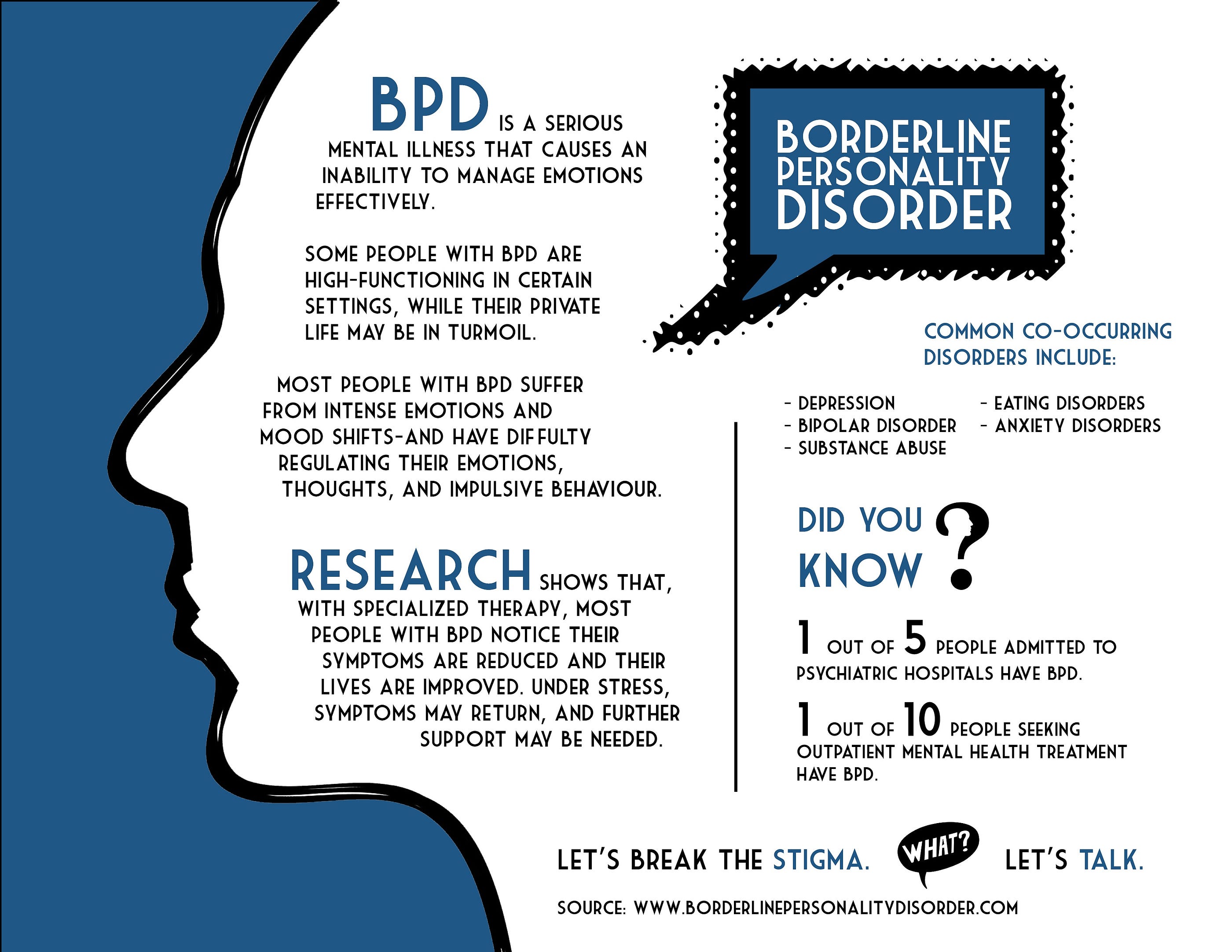
Painted Brain | What Is Quiet Borderline Personality Disorder? | by Painted Brain | Medium
11 Hidden Signs of 'Quiet' Borderline Personality Disorder | The Mighty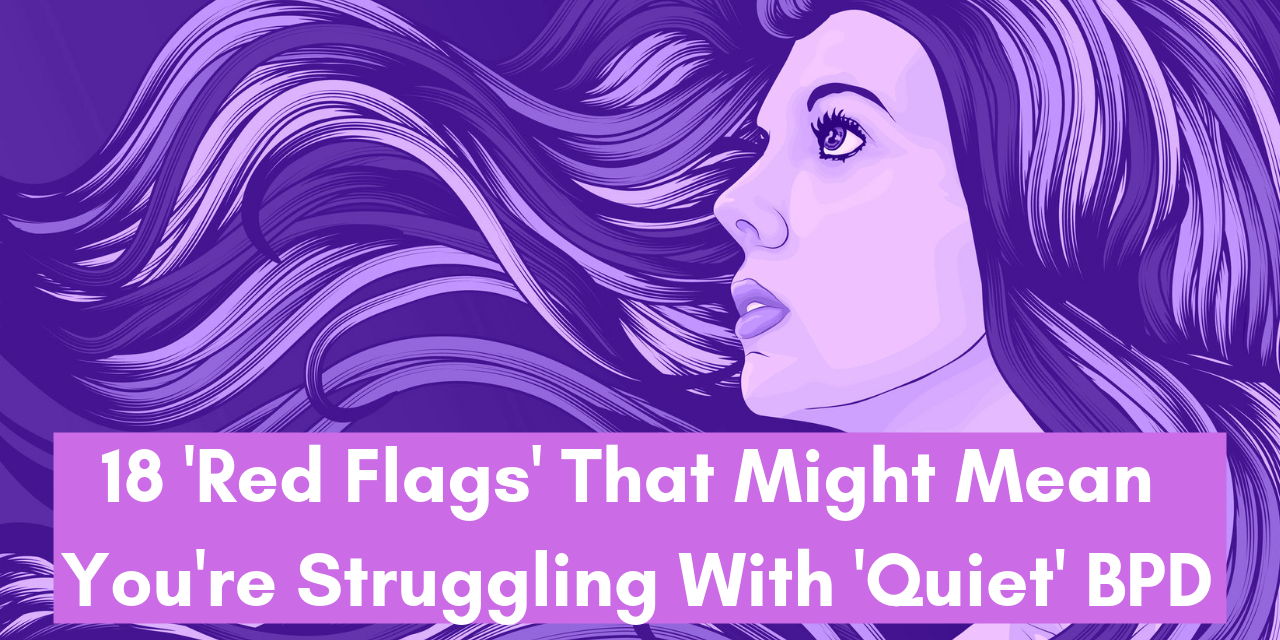
18 'Red Flags' That Might Mean You're Struggling With 'Quiet' BPD | The Mighty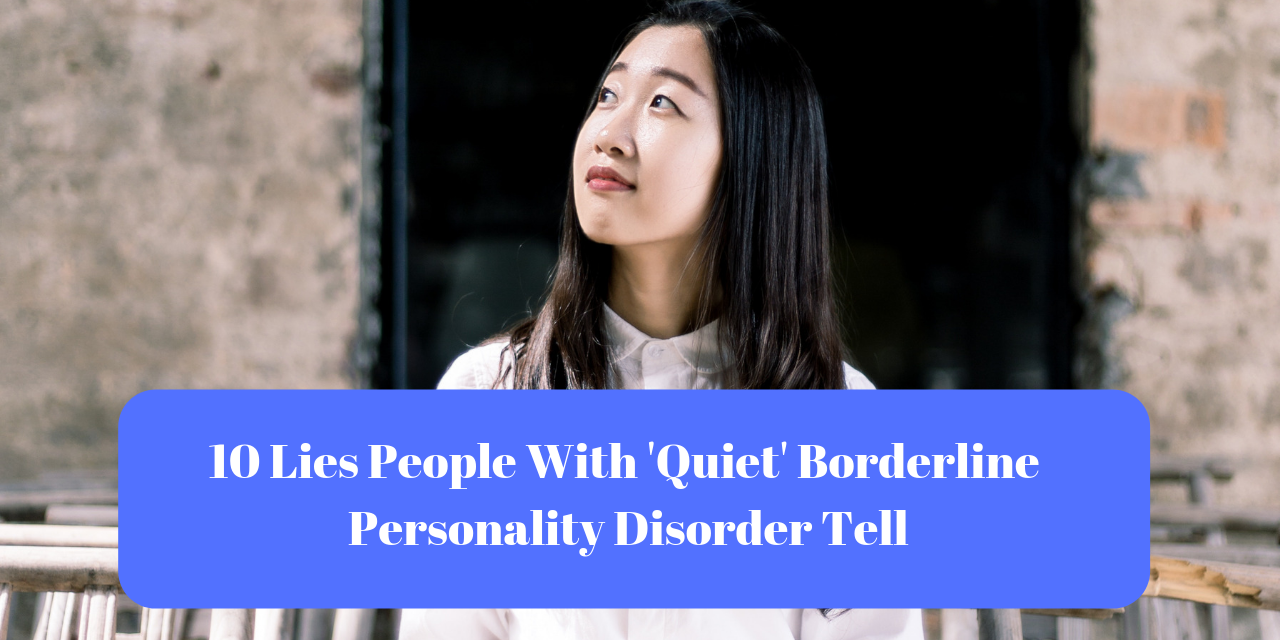
10 Lies People With 'Quiet' Borderline Personality Disorder Tell | The Mighty
Quiet Borderline Personality Disorder Quote (Page 1) - Line.17QQ.com
Psychotherapy of the Quiet Borderline Patient: The as-if Personality Revisited: 9781568210605: Medicine & Health Science Books @ Amazon.com
Signs Of Quiet BPD - Are You Suffering In Silence?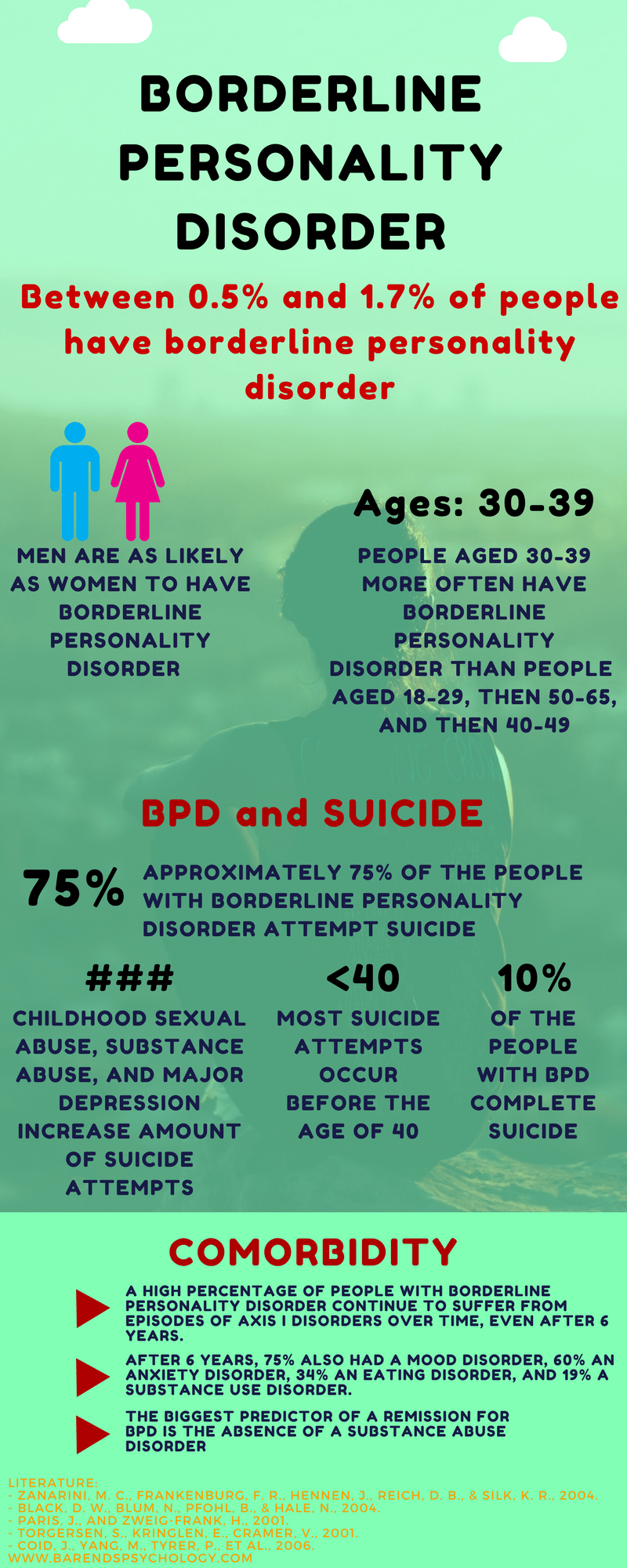
Borderline personality disorder test: free online BPD test.
Quiet Borderline Personality Disorder: Why It's Like a Roller Coaster | The Mighty
The Quiet Borderline The Forgotten Ones (Improved) - YouTube | Quiet, Coping mechanisms, Bpd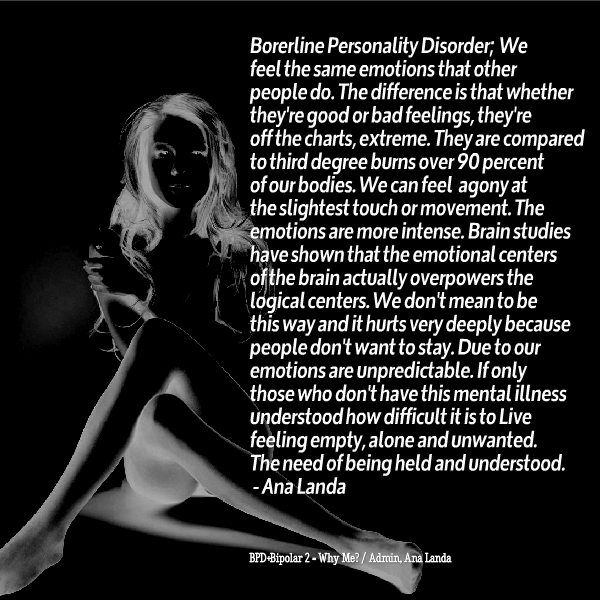
Mixed Feelings: Borderline Personality Disorder | Danielle Beersman
16 'Habits' of People Dealing With 'Borderline Guilt'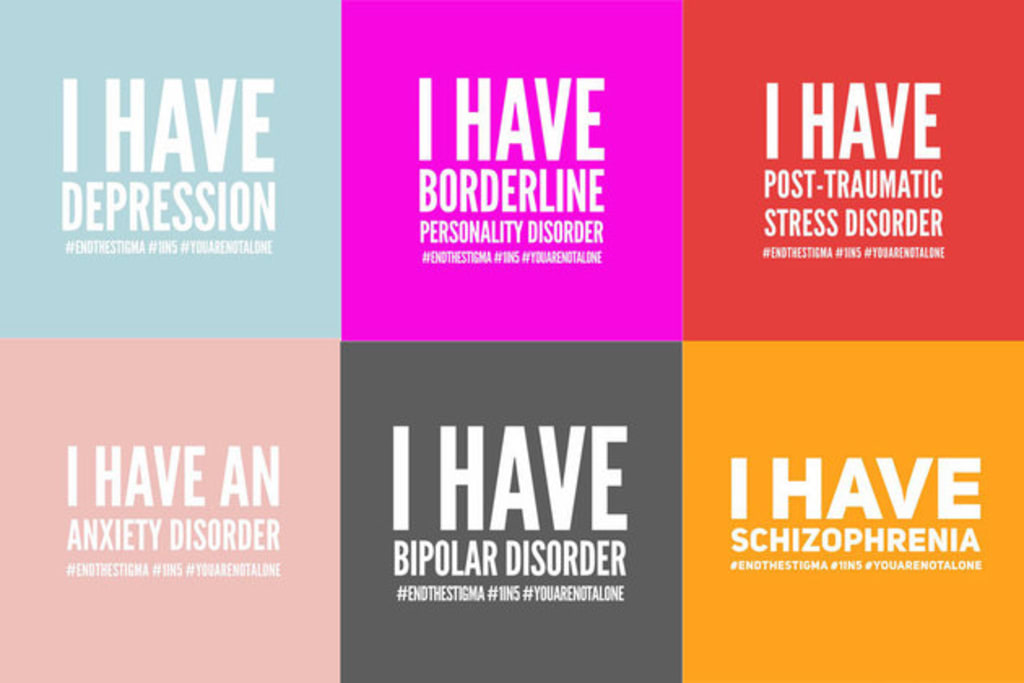
Living with Borderline Personality Disorder - the Diagnosis | Psyche![What are some traits of a person with]()
What are some traits of a person with "quiet" borderline personality disorder? - Quora
11 Hidden Signs of 'Quiet' Borderline Personality Disorder | Bpd relationships, Borderline personality disorder, Borderline personality disorder signs
no more spoons, only knives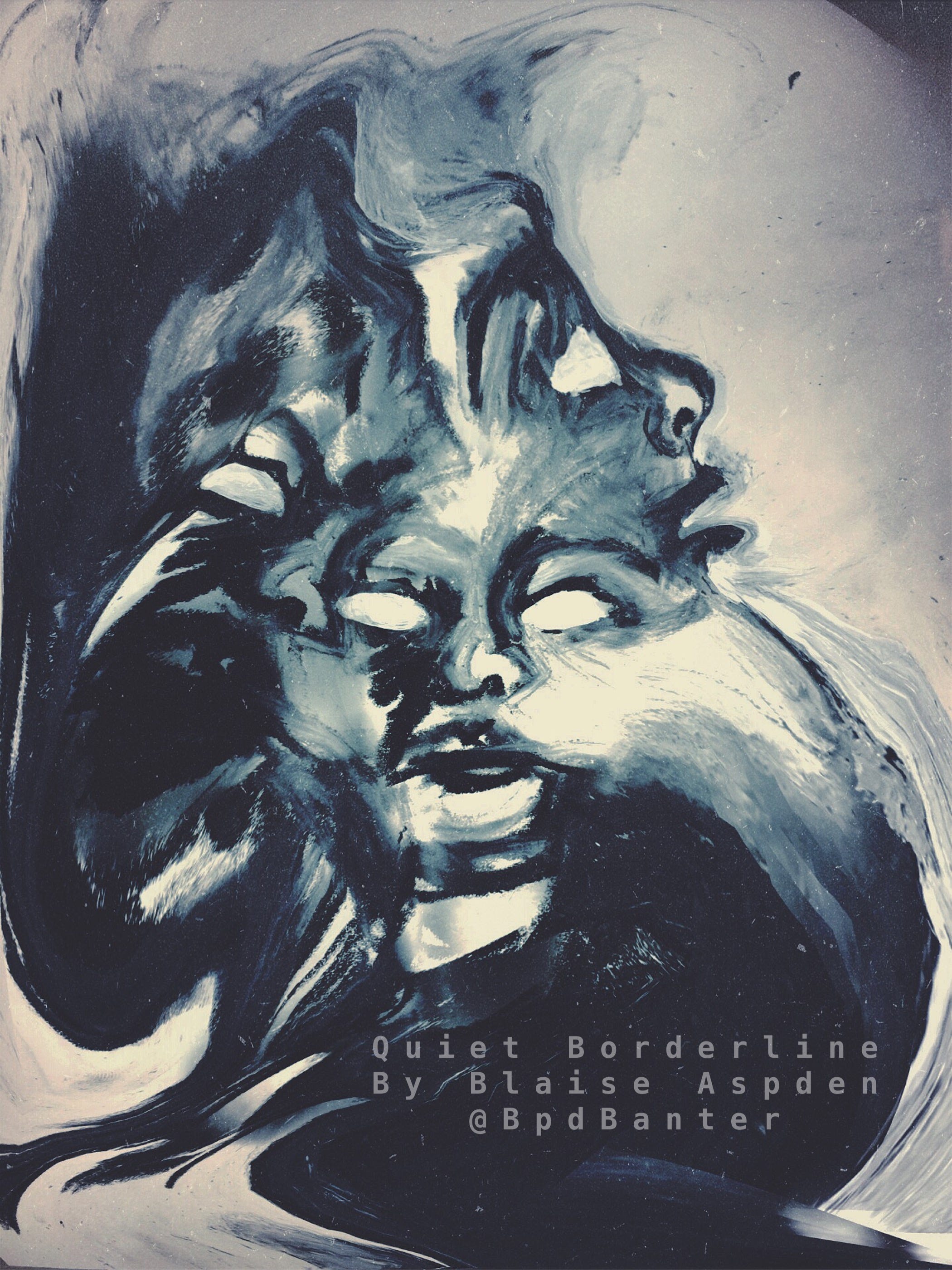
Quiet Borderline. | by Blaise | Medium![What Is]()
What Is "Quiet" Borderline Personality Disorder? #myersbriggs #INFP #ISFJ# #ISTJ #ENFP #ESTJ | Infj personality, Isfj, Personality growth
Quiet BPD: Symptoms, Causes, Diagnosis & Treatment
How do INTPs deal with a mental disorder, such as borderline personality disorder? - Quora![Quiet]()
Quiet" Borderline Personality Disorder![What Is]()
What Is "Quiet" Borderline Personality Disorder? | Talkspace
30 Memes That Are Too Relatable If You're a 'Quiet Borderline' | Memes, Relatable, Borderline personality disorder
Borderline Personality Disorder – Deep thoughts![11]()
11 "Quiet" Borderline Personality Disorder Symptoms | YourTango
11 Hidden Signs of 'Quiet' Borderline Personality Disorder | The Mighty
Hidden Signs of 'Quiet' Borderline Personality Disorder - SOS Safety Magazine
11 Hidden Signs of 'Quiet' Borderline Personality Disorder | Borderline personality disorder, Borderline personality disorder signs, Bpd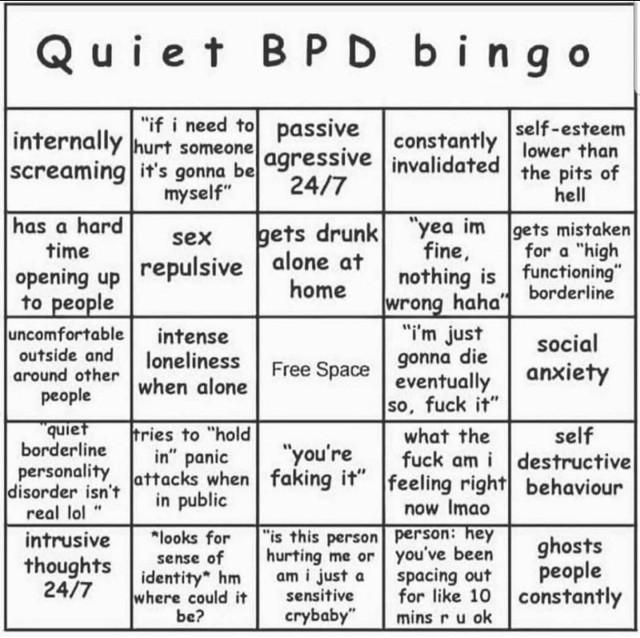
bpd bingo | Explore Tumblr Posts and Blogs | Tumgir
Quiet Borderline Personality Disorder: What is it? – Psych2Go
Quiet Borderline Personality Disorder (A Guide) - PsychReel
Misunderstood Signs That You Have High-Functioning BPD – Awareness Act
The War Inside of My Mind![What Is]()
What Is "Quiet" Borderline Personality Disorder? #Personality#INTP #ISFJ# … | Borderline personality disorder, Emotional manipulation, Personality disorder quotes![PSYCH101: Cristina Crego and Thomas Widiger's]()
PSYCH101: Cristina Crego and Thomas Widiger's "Personality Disorders" | Saylor Academy
Quotes About Borderline Personality Disorder (Page 1) - Line.17QQ.com
30 Memes That Are Too Relatable If You're a 'Quiet Borderline' | The Mighty
24 Bpd ideas | bpd, borderline personality disorder, personality disorder
What's your craziest borderline personality disorder story? - Quora
Borderline personality disorder: An invisible struggle — Quartz India
 18 Signs You Grew Up With 'Quiet Borderline Personality Disorder' | The Mighty
18 Signs You Grew Up With 'Quiet Borderline Personality Disorder' | The Mighty





























Posting Komentar untuk "quiet borderline personality disorder"